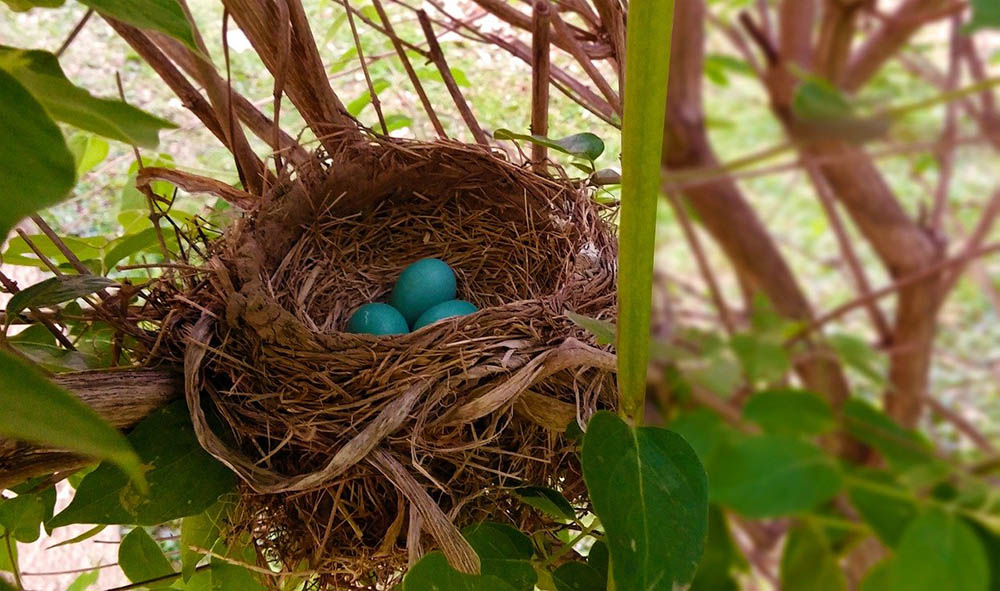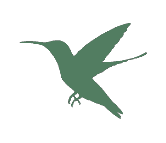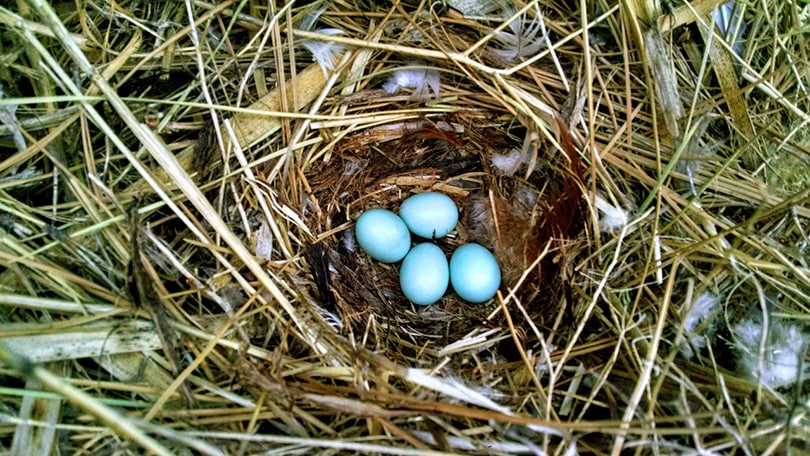How to Tell If a Robin Egg Is Alive: 4 Simple Ways
Last Updated on

It’s not very uncommon to find an abandoned bird egg, especially in the spring when most birds hatch. Sometimes mother birds abandon their nests because they don’t feel safe, or sometimes a storm will destroy their home and scatter the eggs. Whatever the reason, if you have found a robin’s egg, you’re probably wondering what you can do to try to save it. Here are some ways you can tell if it’s still alive and what to do from there.

How to Identify a Robin Egg
First of all, how do you know it’s a robin egg? It’s important to identify the species because some birds are legally protected and must be reported to the nearest wildlife rehabilitation clinic. Robin eggs are characteristically blue, but they don’t have to be. They can also be white or have speckles. Typically, though, they’re small and sky-blue or teal without markings.

4 Ways to Tell If a Robin Egg Is Viable:
If you’ve determined you have a robin egg, here are some ways to tell if it’s still alive:
- Notice the weight. If the shell feels extremely light, you might just have a hollow shell. Follow the next step to determine whether the egg contains a creature or not.
- Shine a flashlight. Take the egg to a dark room and shine the light through the egg. You should be able to see a baby bird inside! Even if it’s not fully formed yet, the shell should hold a dark mass with a yolk and veins running through it.
- Look for cracks. Speckles are fine, but gaping holes and deep fissures aren’t good signs. If your egg has huge cracks, the shell probably wasn’t able to retain the yolk and the bird is dead.
- Wait for it to hatch. This last one probably goes without saying, but when in doubt, you could keep the egg and wait to see if it hatches.
How Long Does It Take a Robin Egg to Hatch?
The incubation period for a robin is 12-14 days. If two weeks roll by and your egg hasn’t hatched, it’s probably dead. Give it a couple more days and then toss it if nothing happens.

What Should You Do If You Find a Robin Egg?
If you find a robin egg, the first thing you should do is look around for a nest. For example, if you found it underneath a tree, search the branches for a nest to see if a predator could’ve dumped it out of its home. Robins like to build branches out of grass and mud in the lower branches of trees, or even in man-made structures such as gutters or window boxes.
Pay attention to any signs that its nest was destroyed and consider the weather patterns of the previous few days. If a thunderstorm shook the trees last night, the bird’s nest was most likely affected by the wind and might have been destroyed. You could also stay for a few minutes to try to spot the mother. Even if the nest was destroyed, sometimes mother birds will try to come back to their young, although it’s not as likely if the bird hadn’t hatched yet.
If you’re able to locate the nest, that’s great news! You should place the egg back in its nest. Wear gloves so that the least amount of human scent is left on the egg, which could deter the mother from returning.
If you can’t find its home, the next step is up to you. You could walk away. You could take it to a wildlife rehabilitation center if there’s one nearby. Or, if your heart aches for this tiny creature and you’re not near professional help, you could try to take care of it yourself. This should definitely be the last resort after you’ve exhausted all chances of locating its true home and researched to see if there’s a professional bird caregiver near you who could provide extensive support to give it its best chance.
If you decide to take the bird egg, handle it with care. Keep it warm, preferably under an incubator light if you have one, and hope for the best. Be prepared to provide it with a nest (towels in a laundry hamper works well) should it hatch, along with feedings every couple hours. Robins mostly eat earthworms, which you can source from a local tackle shop. Store them in the refrigerator and feed them to your new hatchling in pieces at first to prevent choking.

Summing Up
It’s always painful to see any animal in distress, but the first step should always be as least intrusive as possible. Birds do best in the wild, but an abandoned egg will likely die without your support if it’s been orphaned. If you determine its home and family has been lost and the bird is alive, consider taking it in and giving it a second chance. It’ll be a lot of work once the egg hatches, but it’s rewarding if the bird survives. Just remember, you’re a foster and not the owner. The goal is for your robin to eventually grow up and fly away—and hopefully come back for a visit in the spring.
Featured Image Credit: Deedster, Pixabay
About the Author Brooke Bundy
Brooke Bundy is a freelance writer who lives with three cats and a dog. She attended the University of North Georgia where she acquired a B.S. in Media Studies. Booke loves storytelling and spending time with her pets at their house in New Orleans, Louisiana. In her free time, she enjoys gardening, cooking, and brewing coffee.
Related Articles:
Binocular Magnification Chart: Numbers & Distances Compared
What Is the Best Binocular Magnification for Hunting? Optical Features Explained
How to Clean a Rifle Scope: 8 Expert Tips
10 Types of Hummingbirds in Arkansas (With Pictures)
8 Types of Hummingbirds in Nebraska (With Pictures)
5 Types of Hummingbirds in Idaho (With Pictures)
3 Types of Hummingbirds in Mississippi (With Pictures)
8 Types of Hummingbirds in Kansas (With Pictures)
